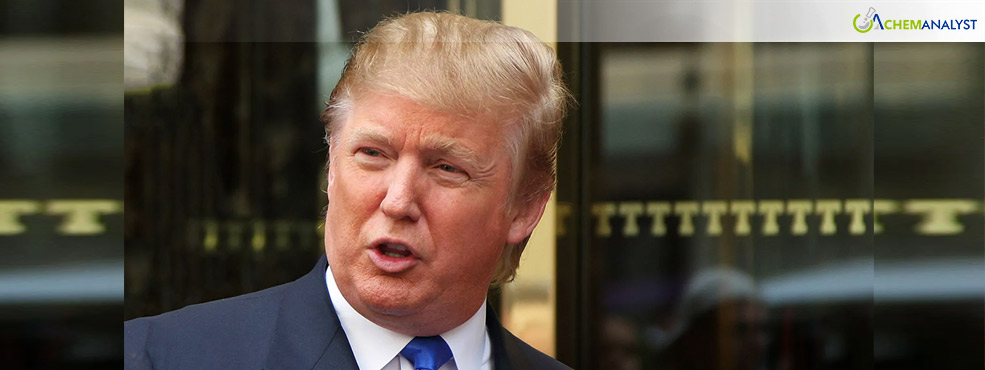Welcome To ChemAnalyst

In a recent statement, President Donald Trump confirmed that the planned 25% tariffs on imports from Canada and Mexico will proceed as scheduled, with the March 4 deadline remaining intact. The tariffs, which will apply to a wide range of U.S. imports from both nations, including cars, energy, and agriculture, are poised to impact over $918 billion worth of goods.
During a joint news conference with French President Emmanuel Macron, Trump addressed questions on the trade dispute, emphasizing that the tariffs were "on time and on schedule." Despite ongoing diplomatic talks and efforts from both Canada and Mexico to address issues such as border security and the flow of fentanyl into the United States, Trump insisted that the tariffs would go forward unless substantial progress was made to meet his demands.
"We’ve been mistreated by many countries, not just Canada and Mexico, and have been taken advantage of," Trump stated, referring to his broader trade policy. He reiterated his belief that reciprocal tariffs — where the U.S. would match tariff rates imposed by other countries — were necessary to ensure fairness in international trade.
This hardline stance is consistent with the president’s previous positions on global trade. Trump has long criticized foreign nations for imposing high tariffs on U.S. goods while the U.S. maintains lower barriers. He pointed to the perceived "abuse" by other nations, adding that the problem lay not with the countries themselves but with U.S. leadership in the past.
The March 4 deadline had initially been set in February, but Canada and Mexico were granted a brief extension to work on increasing border security and combating the smuggling of fentanyl, a synthetic opioid that has fueled the U.S. drug crisis. Both countries have responded by ramping up efforts to address the issues raised by the Trump administration. Mexico has deployed up to 10,000 national guard troops along its northern border, while Canada appointed a new fentanyl czar to combat the opioid trade. Canada has also intensified its surveillance along the U.S.-Canada border, utilizing drones and helicopters to track potential illicit activities.
In the meantime, Trump has expanded his trade agenda, including plans to impose reciprocal tariffs on other countries, such as India. The administration has also increased tariffs on steel and aluminium imports, which will take effect just a week after the border tariffs on March 12.
While both Mexico and Canada have engaged in direct discussions with the U.S., including recent meetings with Mexican Economy Minister Marcelo Ebrard and Canadian Prime Minister Justin Trudeau, the threat of tariffs looms large. Mexican President Claudia Sheinbaum has expressed hope that a deal can be struck before the deadline, suggesting that she may engage directly with Trump if necessary. However, the growing concerns over inflation and the broader economic impact of the tariffs continue to complicate these talks.
We use cookies to deliver the best possible experience on our website. To learn more, visit our Privacy Policy. By continuing to use this site or by closing this box, you consent to our use of cookies. More info.
